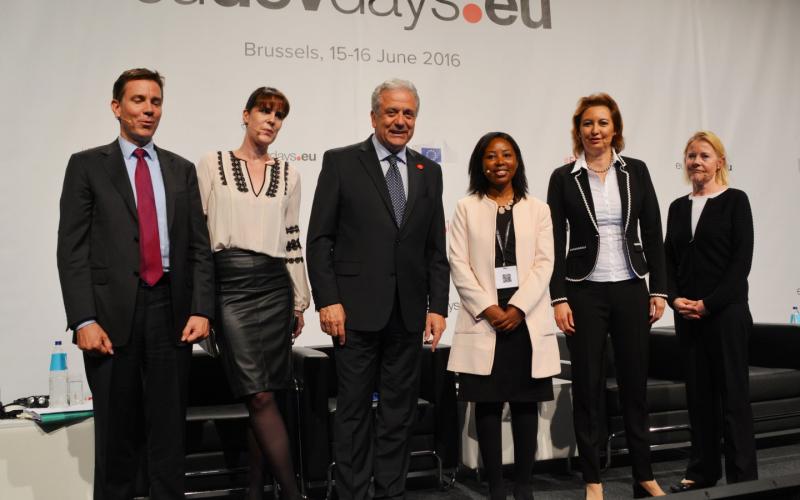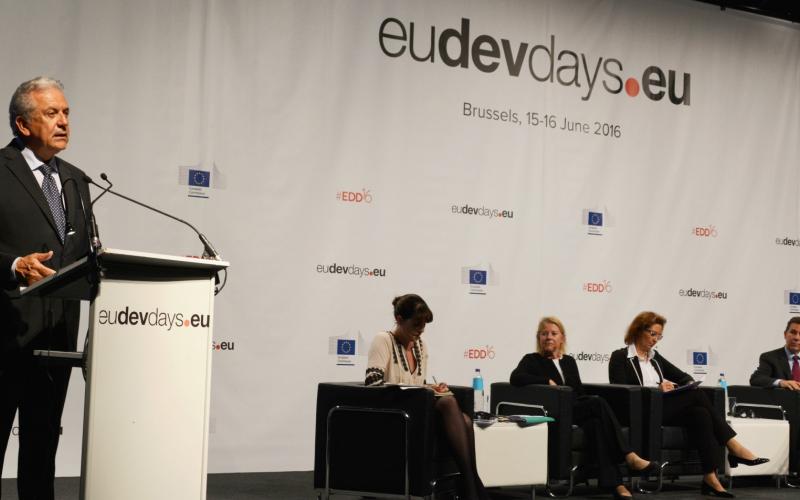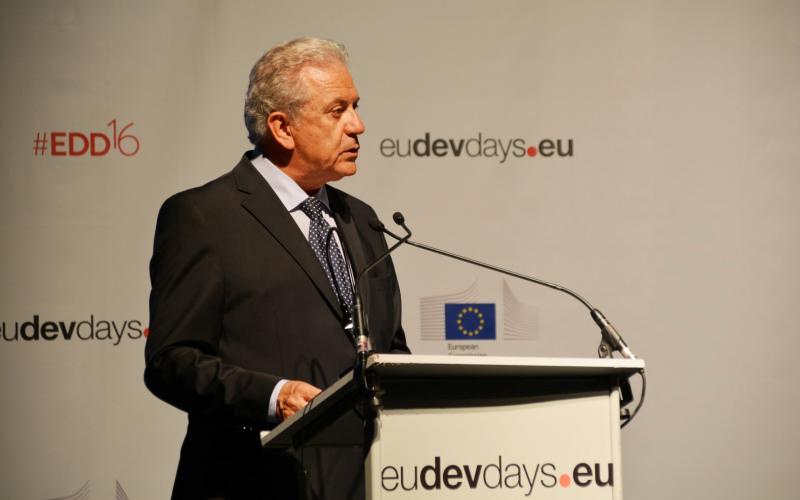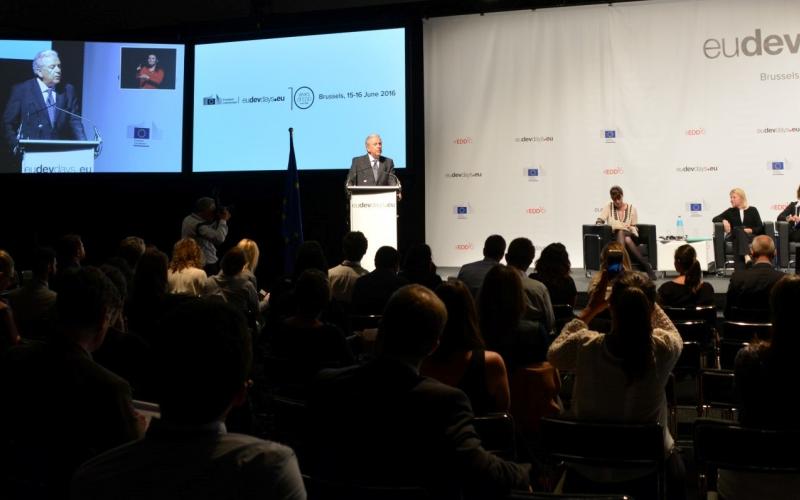Dear friends,
I am happy to be here with you today, at Europe's leading Forum on development cooperation.
Let me start by recalling the facts: Today, more than 60 million people in the world are forcibly displaced.
Some of these people have fled war or terror; others were born in displacement and know no other life than that of being a refugee.
Ladies and Gentlemen,
We are witnessing the highest level of displacement since World War Two, having to deal with a crisis of an unprecedented scale. This is a global crisis.
We all face the same challenges: from trying to save lives and offer protection, to fighting smugglers and traffickers and addressing root causes of irregular migration.
This is not business as usual. There is a clear need for an immediate, comprehensive and coordinated response.
It is not a coincidence that, for the very first time, the 2030 Agenda for Sustainable Development now includes migration.
Nor it is a coincidence that, global fora discuss migration as a top priority: last November in Valletta, a month ago in Istanbul, New York in September.
And I grasp today's opportunity to voice that, all of us together, the EU, the UN, world leaders, decision-makers, the civil society and all key stakeholders, shall use this political momentum to strive for: turning migration into exquisite opportunities for development.
I am sure that none of us wants to witness any more fatal journeys of people that dreamt of a better future. We must put an end.
For this to happen, we need to work together: countries hosting large refugee populations, countries of origin and countries of transit.
We are all confronted with enormous challenges.
This is why, just a week ago, the European Commission has proposed a new partnership framework under the European Agenda on Migration.
You may have heard about the so-called 'compacts': These are nothing more and nothing less than packages tailored to each of our partner countries' specific circumstances.
I am confident that this approach will help bring tangible benefits: benefits for the refugees themselves, for the social cohesion of our societies.
Addressing root causes of irregular migration is a great challenge which development cooperation can effectively address.
But you will also agree with me about the great challenge of managing migration.
This past year has been an unparalleled challenge for Europe; as it has been for other countries around the world, hosting people in need of protection.
Today, I call for a reinforcement of our cooperation.
We can learn a lot from each other.
We can help each other!
On our side, we have already significantly increased the funding available for migration management over the past year.
And we did not stop there: We are now proposing to increase funding even more, starting with a €500 million reinforcement of the Africa Trust Fund, an innovative tool established last November in Valletta.
We are calling on our Member States to match this to reach €1 billion.
In fact, combining our forces, and I am speaking about the EU and its Member States, a total of €8 billion can be made available to support these compacts for the next five years.
And yes, we need to do more than that: We need to enhance opportunities in countries of origin, so people are not compelled to leave.
Here, today, is the right place to say, that we need to reconsider our traditional models of development cooperation by also giving a much greater role to private investors.
We will shortly propose a new External Investment Fund, aiming to crowd-in private investment in such countries, starting with Africa and the EU neighbourhood.
But the need for more financial support is only one dimension of our response: We also need structural, long-term solutions for those countries that are disrupted by instability, as well as for countries of transit and destination. Above all, we need long term solutions for those vulnerable people that seek refuge.
Ladies and gentlemen,
I have said before that today's refugee crisis is a global challenge.
Our joint response requires shared responsibility amongst all nations around the world.
One concrete way of translating this responsibility-sharing into action, is by offering resettlement to those in need.
The EU Member States have already committed to resettle thousands of refugees.
And I count on our Member States to deliver on these commitments.
But, I hope to hear about such commitments by the rest of the world in September, during my participation to the United Nations General Assembly Summit on refugees and migrants.
Opening legal ways for migrants is an indispensable element for stemming irregular migration.
Of course, this goes beyond resettling those in need of protection.
That being said, please be assured that Europe is not closing its borders to migrants.
It never has and it never will.
Quite the opposite: Every year, more than 2 million people are given residence permits for work, studies, family or other reasons.
Nearly 15 million receive short-term visas.
With 1 million non-EU students present, the EU is one of the world's most attractive destinations.
And we want to make it even more attractive.
A week ago, we proposed a revision of the EU Blue Card Directive, to make it easier and more attractive for highly-skilled workers to find a job in the EU.
This revision would also facilitate mobility.
Mobility of highly-skilled migrants within the EU, while also allowing them leaving the EU for certain periods, and coming back without losing the Blue Card.
In addition, the Blue Card specifically takes into account avoiding brain drain.
This is exactly how migration can contribute to development and prosperity.
But for this to work, we also need to send a strong joint message to the world:
That irregular migration will not be tolerated.
An effective return and readmission policy is the best way to deter people from engaging into a dangerous journey.
All these are building-blocks of a sound and comprehensive migration policy.
And we need to implement this policy TOGETHER: This is the only way in which WE can make migration one of the greatest success stories of the 21st century; for the EU and for the world.







